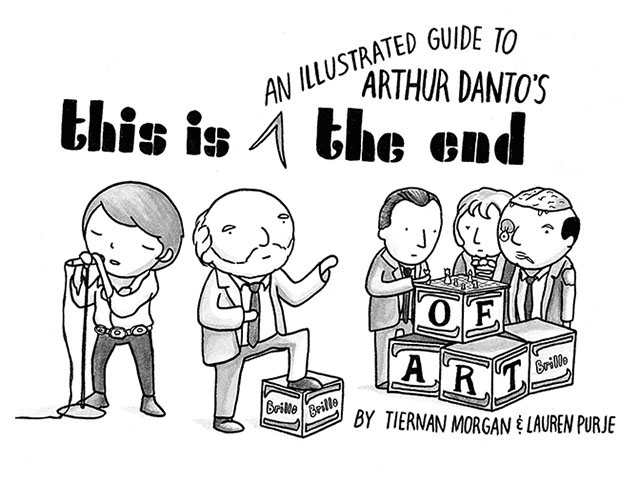Danto’s paradiso
 This piece from Hyperallergic is a great, accurate overview of Arthur Danto’s singular contribution to art philosophy. Reading After The End of Art was a liberating and crucial experience for me, though his conclusions at the end of the book were dispiriting. Essentially he asserted that, in the Sixties, art arrived at the end of the long history of its struggle toward greater and greater creative freedom. In that decade, and ever since, it was established that anything could be designated as a work of art, and therefore an artist could literally do anything as a means of expression. Everything was, and is, permitted, to echo Dostoevsky’s phrase, in a different context.
This piece from Hyperallergic is a great, accurate overview of Arthur Danto’s singular contribution to art philosophy. Reading After The End of Art was a liberating and crucial experience for me, though his conclusions at the end of the book were dispiriting. Essentially he asserted that, in the Sixties, art arrived at the end of the long history of its struggle toward greater and greater creative freedom. In that decade, and ever since, it was established that anything could be designated as a work of art, and therefore an artist could literally do anything as a means of expression. Everything was, and is, permitted, to echo Dostoevsky’s phrase, in a different context.
The question then becomes, why create art at all? If the need to push art “forward” toward something historically new is no longer possible, then why make art? Danto’s answer was that each individual has to answer that question, one person at a time, and that the answer to the question is baked into the artwork just as a philosophy of life is embedded in a person’s daily actions. Each individual has to explore and understand why he is creating something, in utter freedom–there is no obligation to do anything in any particular way. The work must justify itself, without relying on an historical context: no more schools of art to advocate one way of doing things over many others. (Danto’s point was that whatever virtues one way of doing things has over another, it isn’t because it’s fresher or more “contemporary” or new in the traditional sense or somehow an historical advance over what has come before.) His key insight was that Pop Art was the art movement to end all art movements, liberating all individual artists to do whatever they wished, and think for themselves, as individuals.
Whether Pop Art holds up now as something that’s still interesting, MORE